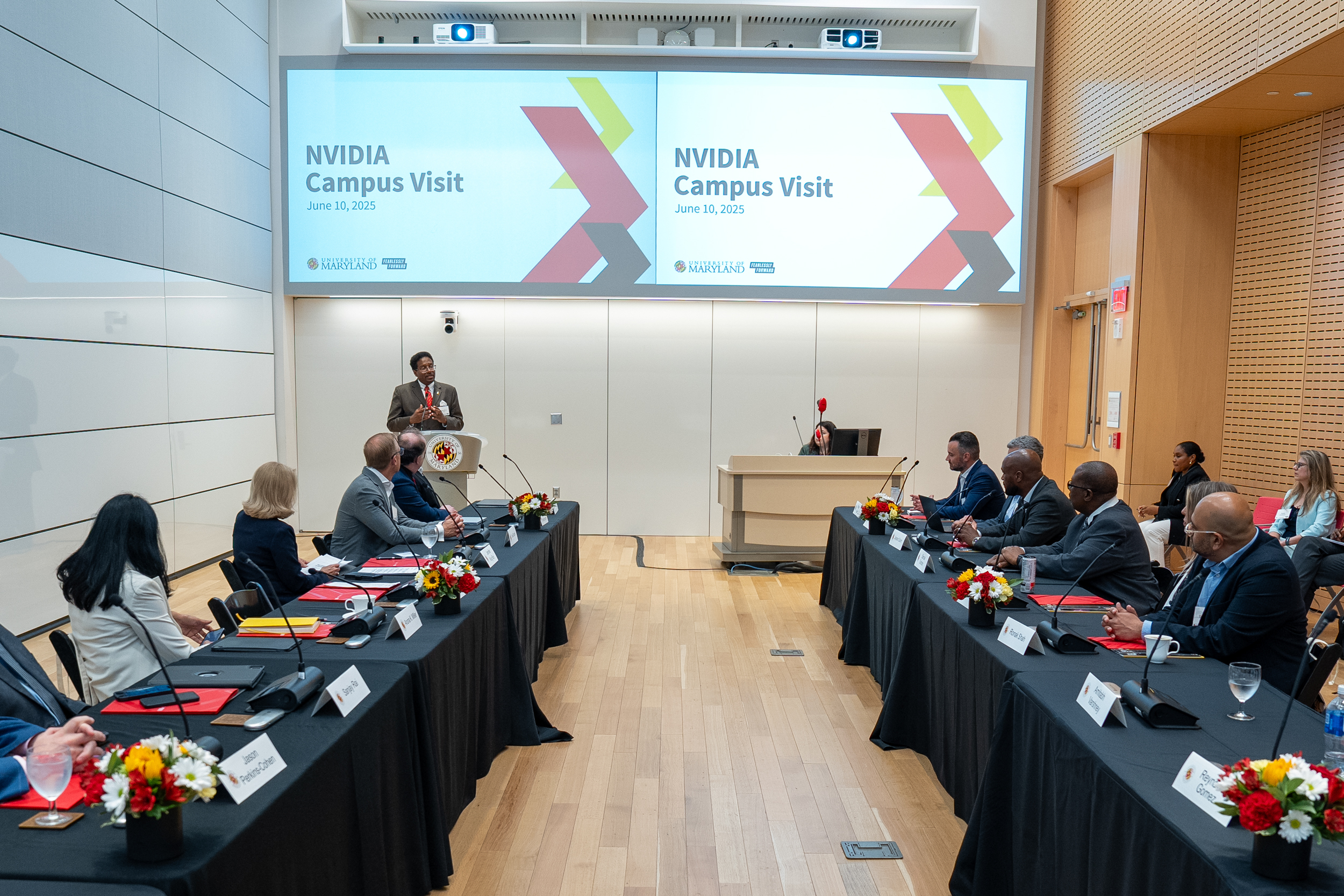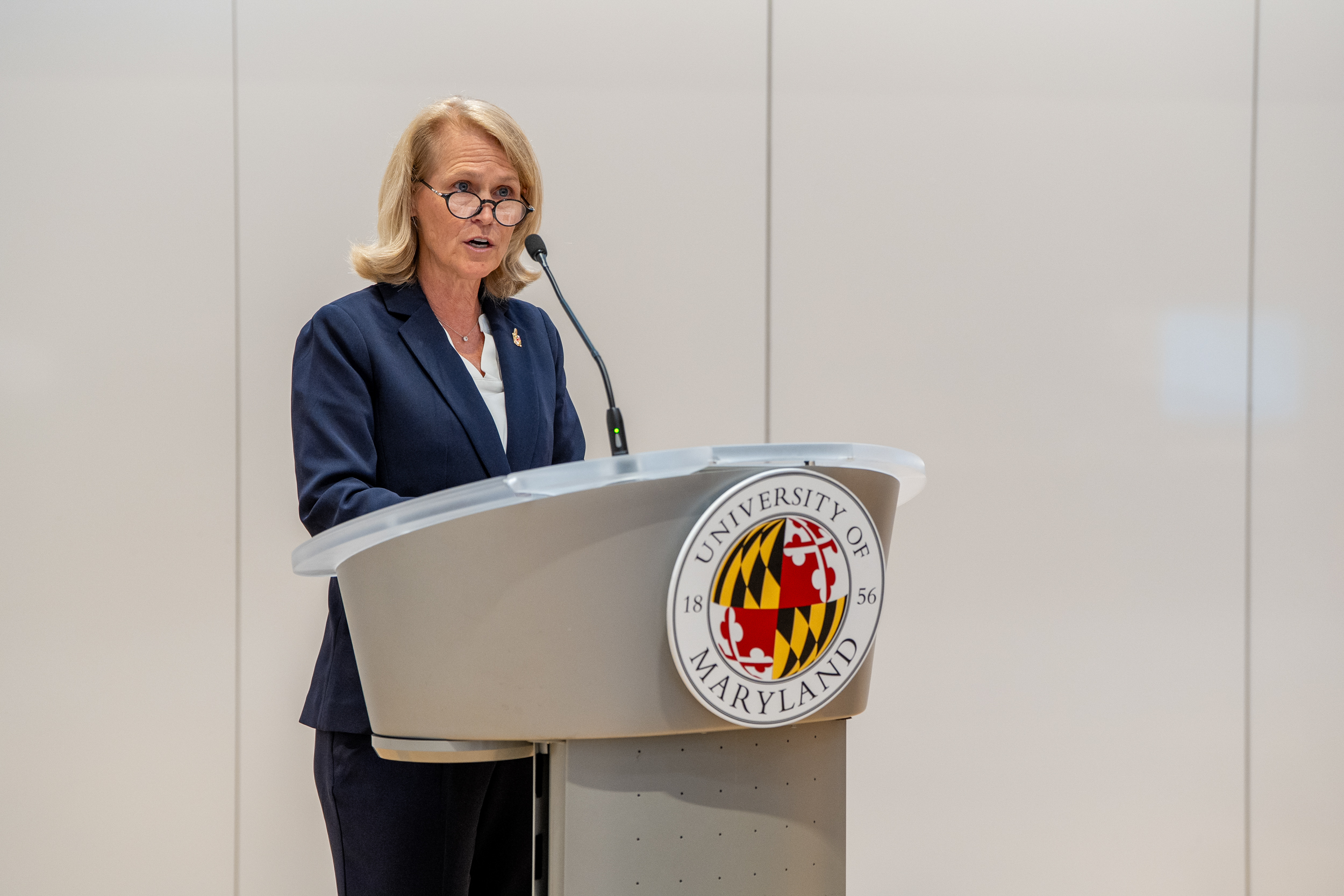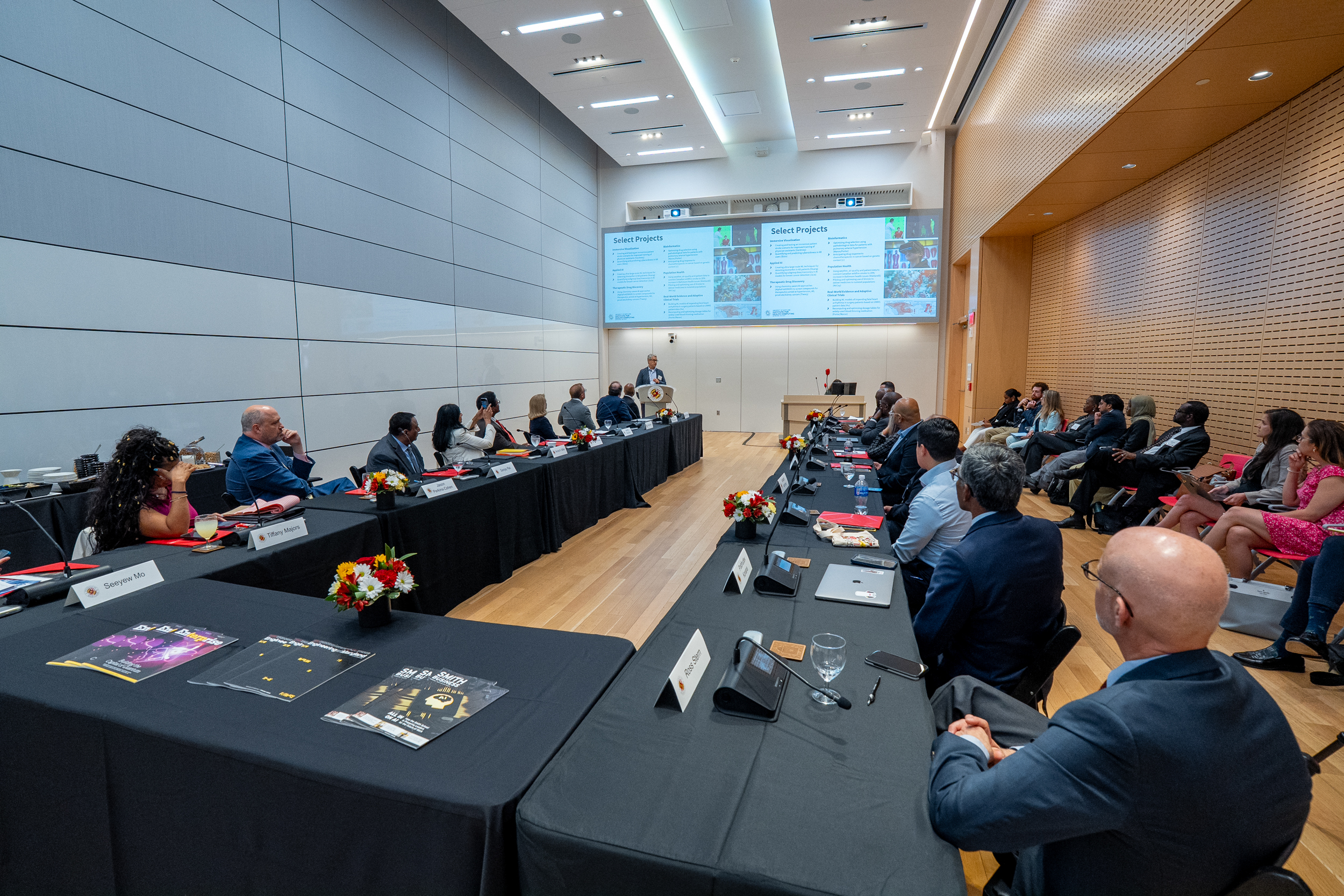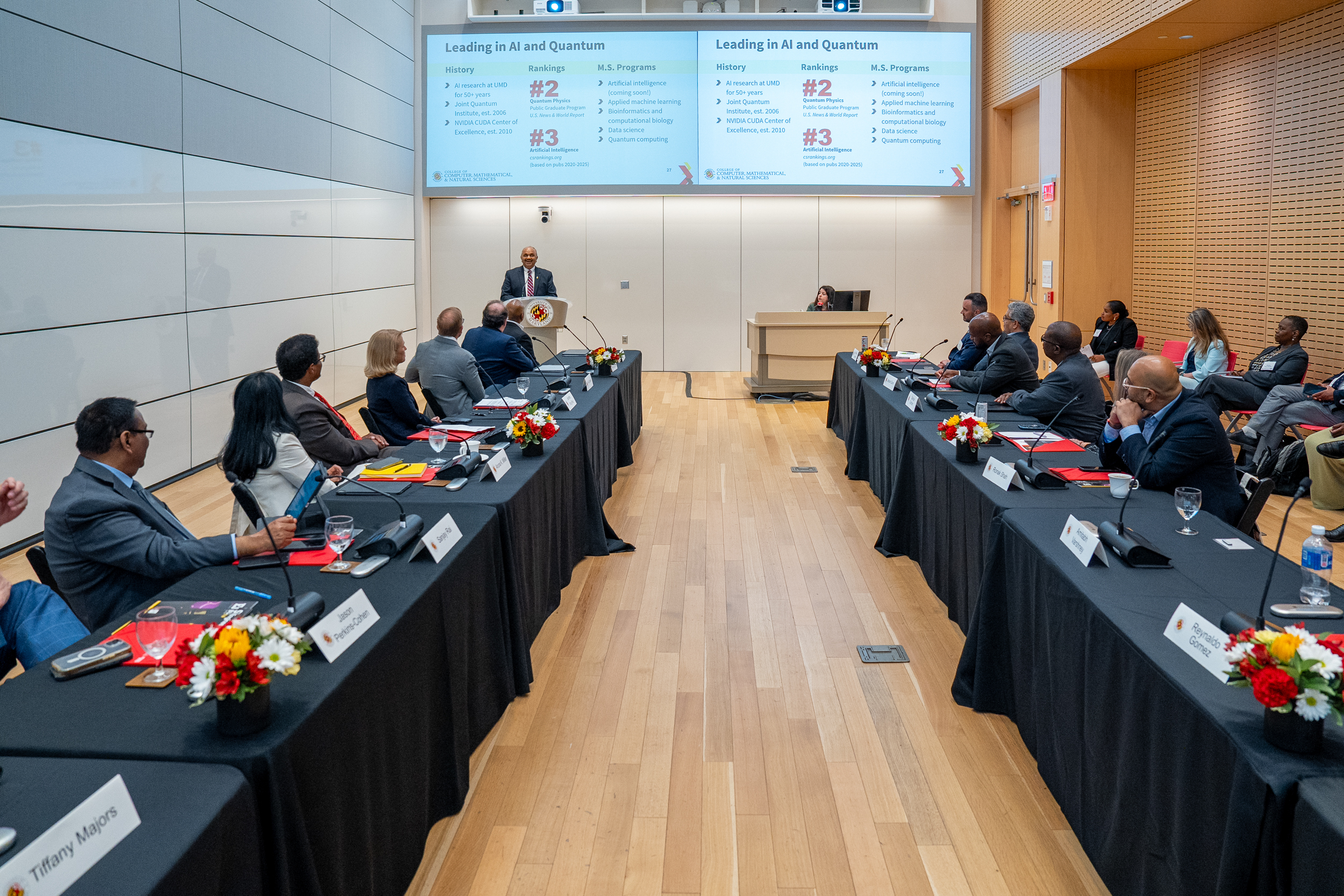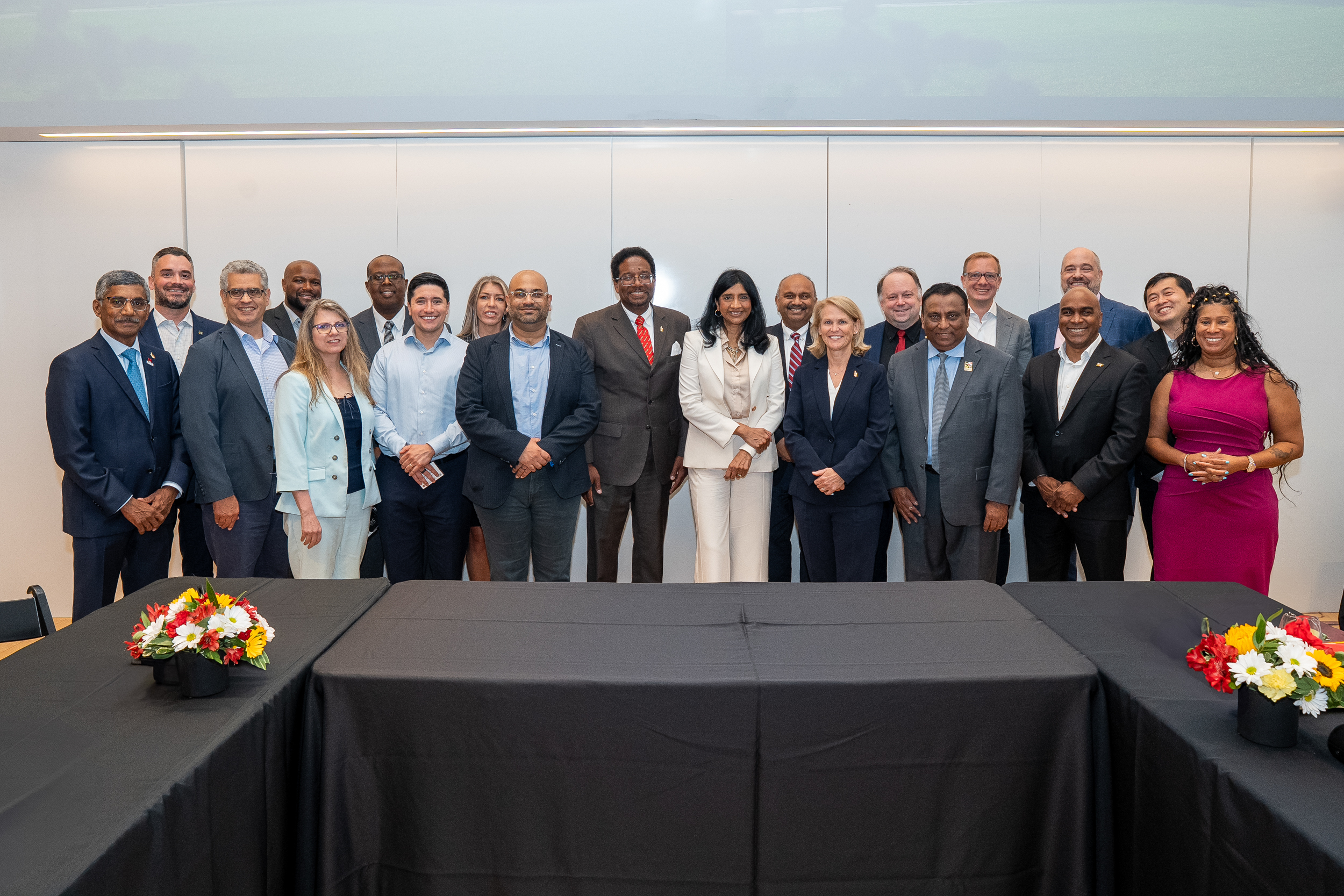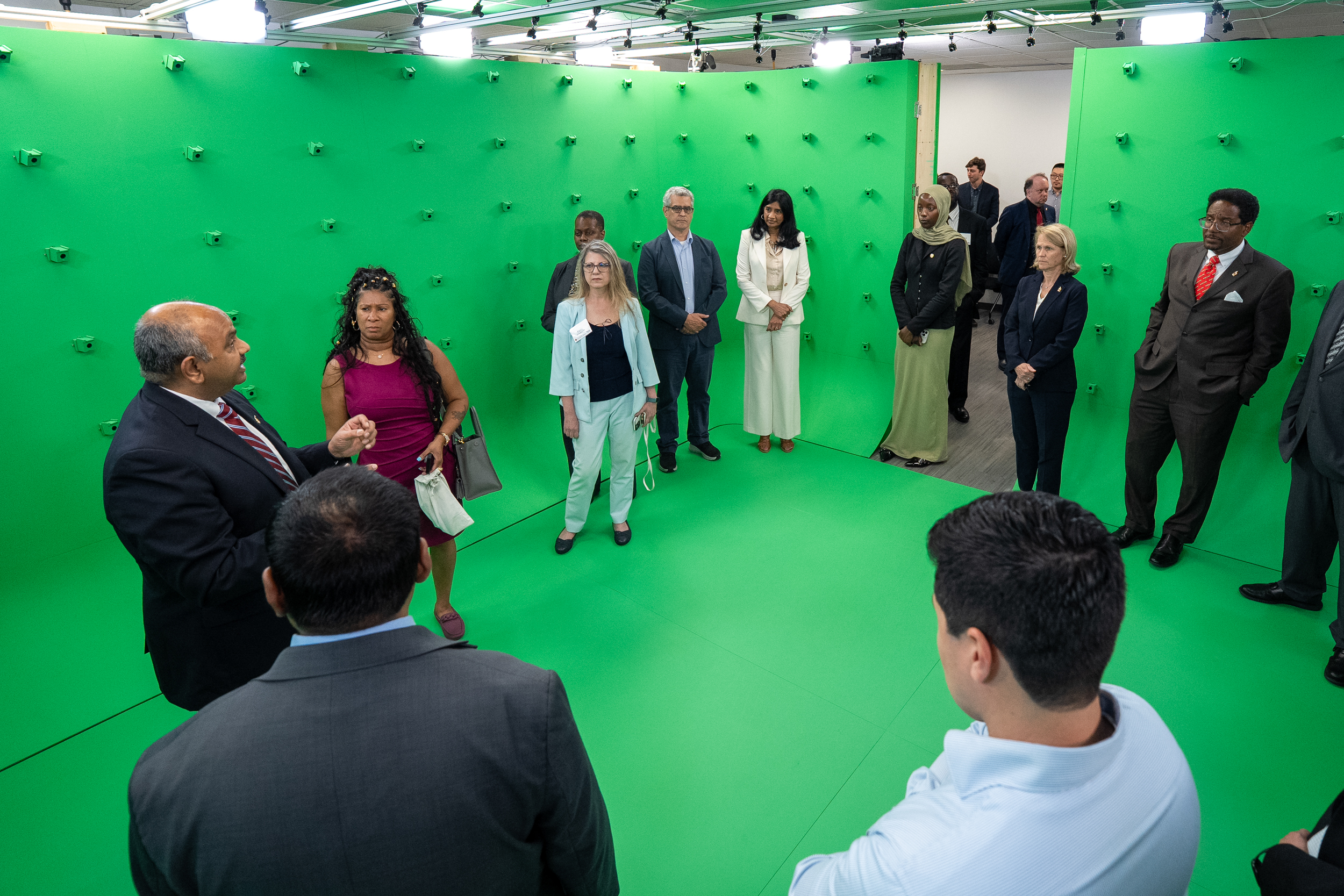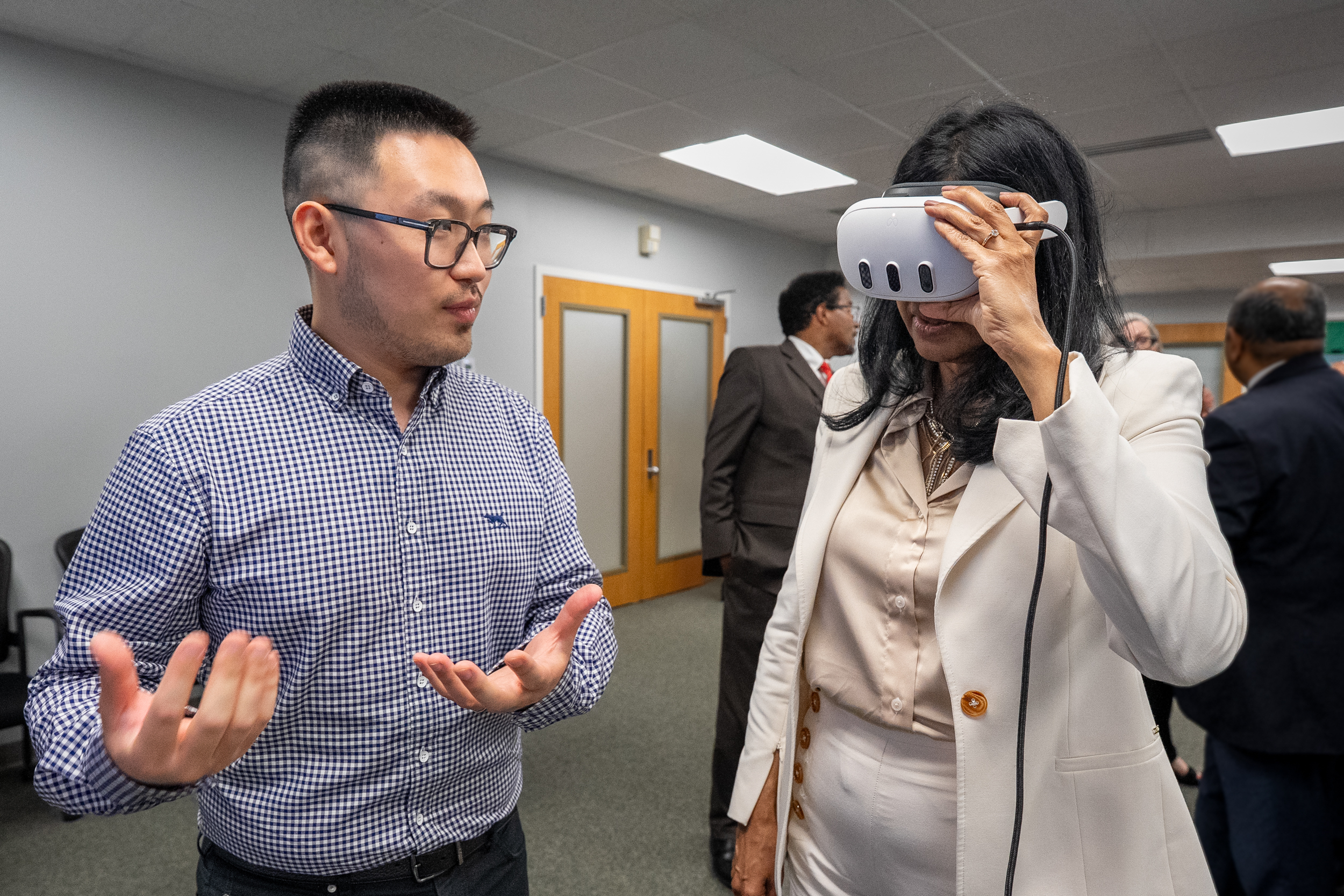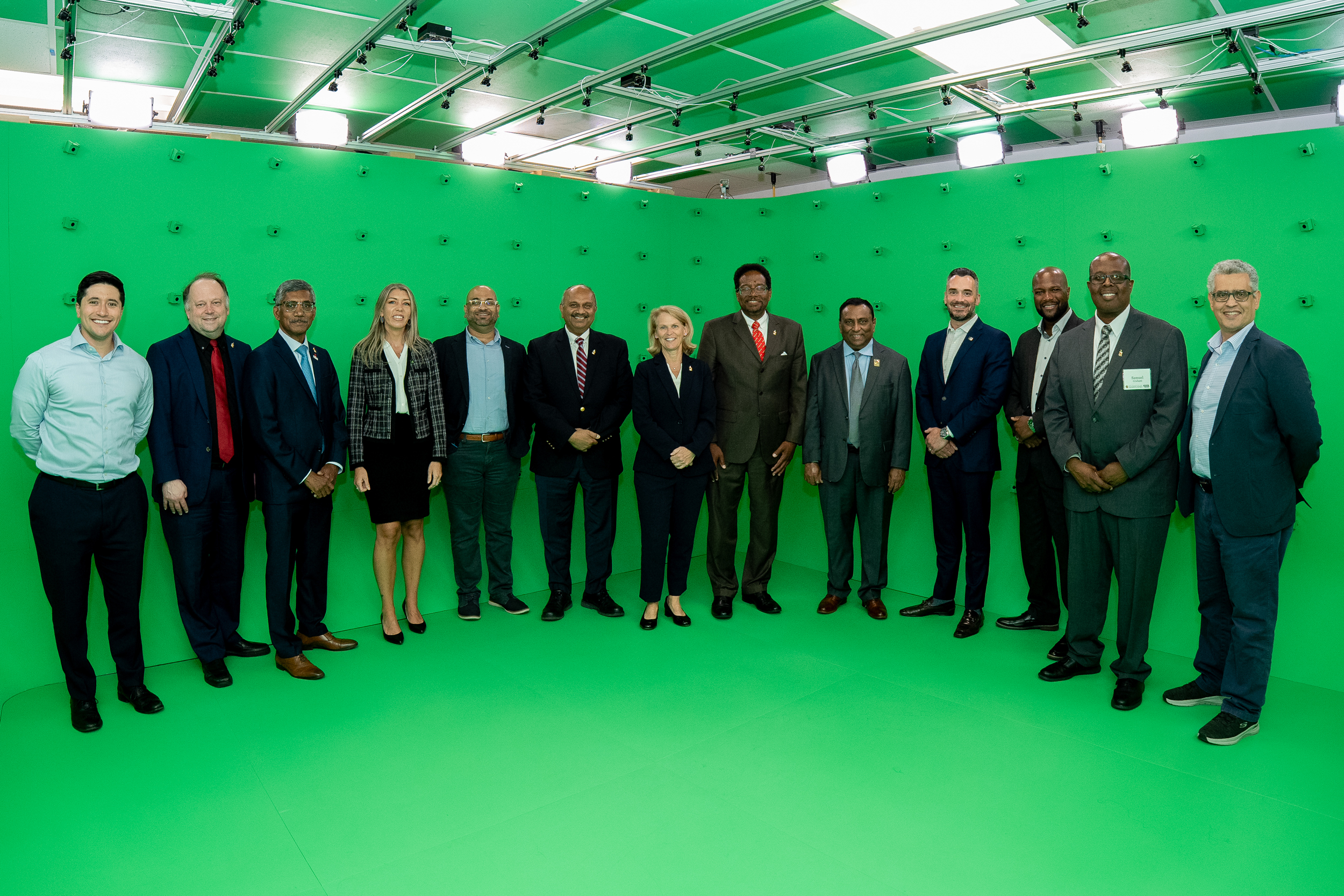At UMD, Lt. Governor Says ‘It’s Going to Take a Partnership … to Elevate the Future’
Artificial intelligence (AI), quantum science and emerging technologies developed at the University of Maryland can help solve major societal challenges for the people of the state and the world, according to a range of leaders who gathered for discussion in A. James Clark Hall on June 10, 2025.
Among the guests were Lt. Gov. Aruna Miller, state Secretary of Higher Education Sanjay Rai, Deputy Secretary of Labor Jason Perkins-Cohen and representatives from global tech company NVIDIA, a leader in AI-related hardware and software.
“It’s going to take partnership: It’s going to take the federal government, the private sector … and our educational institutions to really elevate the future, not just in Maryland, but globally,” Miller said.
UMD President Darryll J. Pines told the group that when it comes to AI research and education, "We are 'all in' across the entire campus and looking to advance the state's interests so nobody is left behind."
Senior Vice President and Provost Jennifer King Rice’s remarks emphasized the importance of partnerships and shared values between higher education and industry when it comes to emerging technologies, from creating societal impact to developing a strong workforce that knows how to use the technologies effectively, responsibly and ethically.
In addition to discussing how technology research and development at UMD can help solve the world's most pressing issues and drive economic development for the state, the group toured UMD’s HoloCamera. The advanced camera system enables futuristic teaching and learning methods and has been used by physician assistant students at the University of Maryland, Baltimore. Researchers used the system’s 300 imaging devices to create virtual reality training scenarios depicting treatment that students can “step into” and view the procedure from all angles. The National Science Foundation-funded project is led by Computer Science Professor Amitabh Varshney, dean of the College of Computer, Mathematical, and Natural Sciences, who was one of a number of UMD officials who spoke at the event Tuesday.
"The University of Maryland has been a leader in AI for over 50 years," Varshney said. "Current NVIDIA graduate fellows at UMD are working to develop AI systems capable of expert-level audio understanding and reasoning and creating generative models for images and videos to augment human creativity. There is so much innovation going on here in quantum and AI, and we are well-positioned to continue leading in these fields thanks to the intense focus on higher education by Gov. Moore and Lt. Gov. Miller."
Other speakers included A. James Clark School of Engineering Dean Samuel Graham, Jr., Robert H. Smith School of Business Dean Prabhudev Konana, Vice President and Chief Information Officer Jeff Hollingsworth and Institute for Health Computing Co-Executive Director Adam Porter.
“If we want to have a world in which AI really serves and uplifts humanity and society, we need to have technologists at the table, but also social scientists and humanists who understand the implication of these things in the world,” Hal Daumé III, director of the Artificial Intelligence Interdisciplinary Institute at Maryland (AIM), said at the event. “And this is something that the University of Maryland is well suited to do.”



